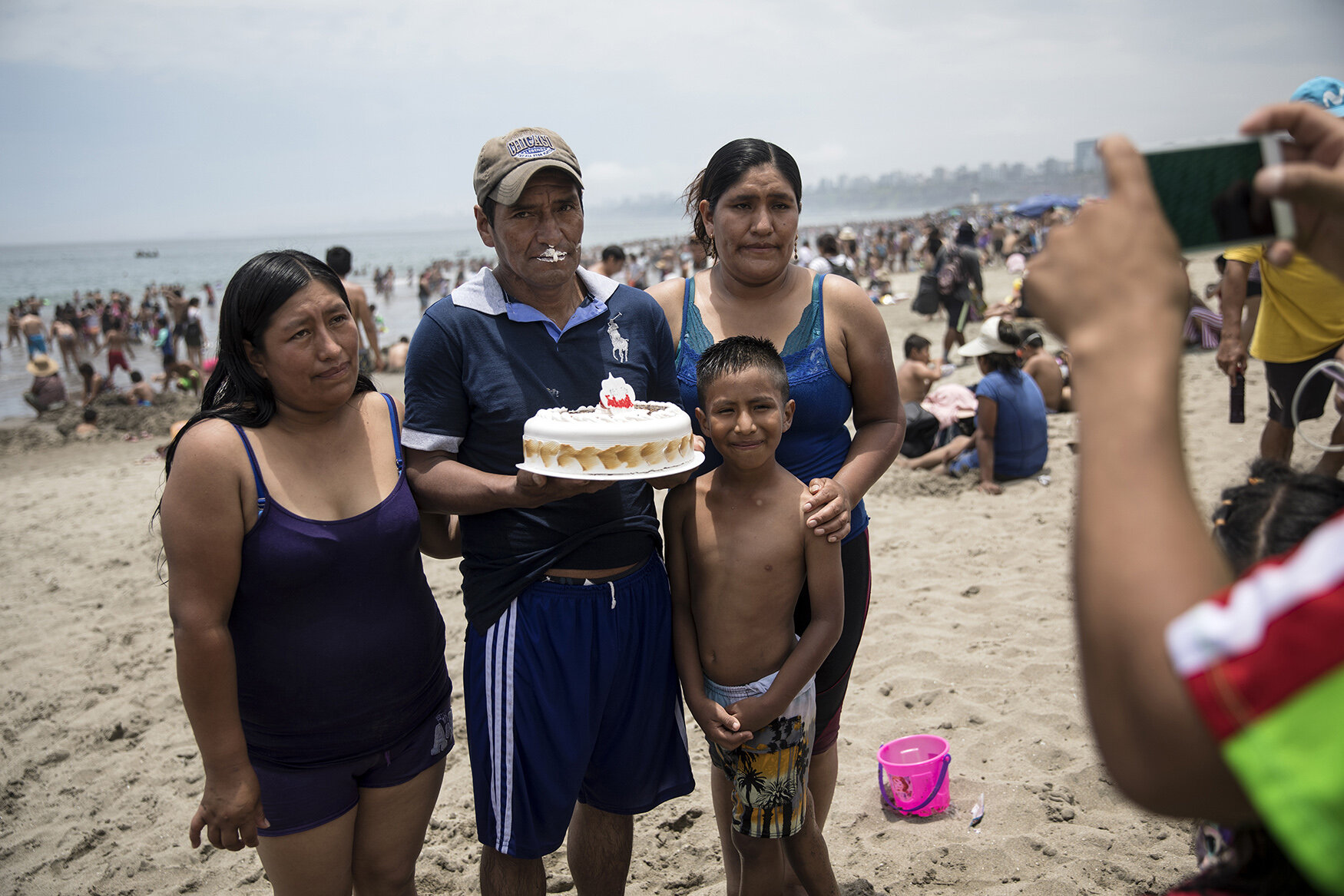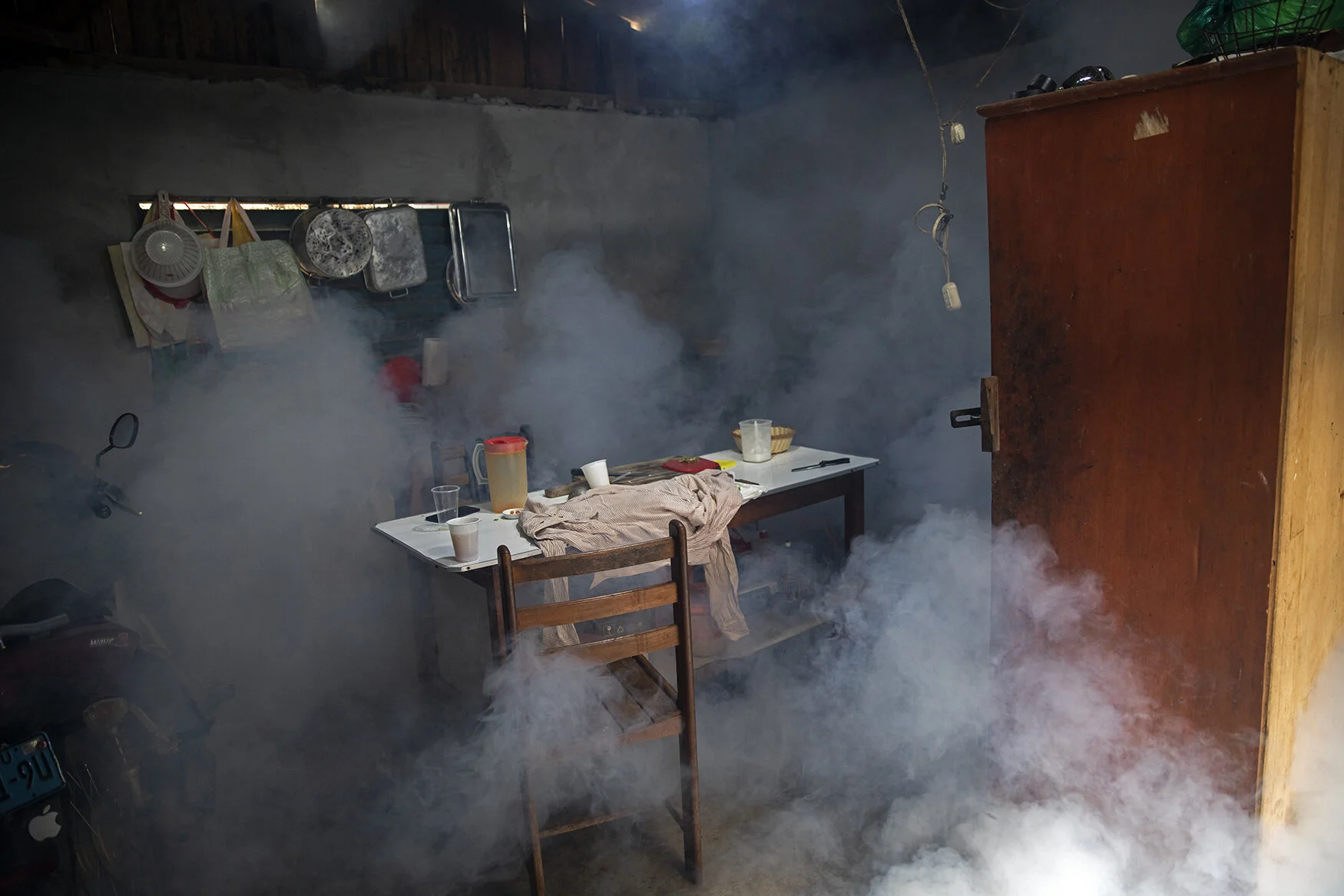COVID makes birth lonely for women in Peru

Before she gave birth in Peru’s largest maternity hospital, María Alvarez closed her eyes and made one request through her face mask.
“Where’s my husband?″ she said. “I want my husband to come.″
But the baby’s father, Marco Martínez, had died a month before from the novel coronavirus.
María, who had an asymptomatic case of the virus, was giving birth to her first child, a daughter, at 24 in a special ward for mothers with COVID-19.
Maria Alvarez, 24, pushes while giving birth in a special ward for mothers infected with COVID-19, at the National Perinatal and Maternal Institute, in Lima, Peru, Wednesday, July 29, 2020. (AP Photo/Rodrigo Abd)
Peru’s National Perinatal and Maternal Institute has dedicated about half its facilities to care for infected pregnant women. Between April and the start of August, more than 2,000 infected patients gave birth there, with 120 newborns testing positive.
One in four people in Peru’s capital of 10 million people could be infected with the coronavirus, according to a study published by health authorities in July, with more than 483,000 confirmed infected across the country of 32 million and more than 21,000 dead.
Despite wearing personal protective equipment and taking other measures to avoid infection, 400 of the 2,000 workers in the institute have also been infected, said its director, Enrique Guevara.
Maria Alvarez shows a picture of herself with her late husband Marco Martinez who died from the new coronavirus in June, while resting in the home of a friend who has offered her a place to stay, in Lima, Peru, Monday, Aug. 10, 2020. (AP Photo/Rodrigo Abd)
Maria Alvarez holds her newborn baby girl, standing near the wooden box that contain the cremated remains of her husband who died from the new coronavirus in June, after arriving home, in Lima, Peru, Thursday, July 30, 2020. (AP Photo/Rodrigo Abd)
Doctors and nurses attend to births, but the institute has barred partners or other relatives, and pregnant women are moved through the hospital in wheeled beds protected by transparent covers to block the virus from spreading.
Martínez returned to Peru in November after five years working in an electronics store in Chile.
Alvarez became pregnant, and after the coronavirus hit Peru, both went to work for a friend sewing face masks.
Martínez became ill and died in June. Alvarez took a test that came back positive, but never experienced symptoms.
She felt contractions on July 29, and rushed to the hospital with a set of blue clothing for the boy that doctors had said was coming. To her surprise, she gave birth to a girl.
Days after giving birth, as she recovered in her isolated bed, she said she had still not decided what to name her daughter.
“What I know,″ she said. ”Is that I don’t want her to suffer like her mother and father.″
Text from the AP story, COVID makes birth lonely for women in Peru, by Franklin Briceno.
Photos by Rodrigo Abd


























